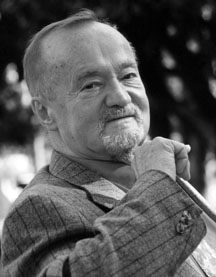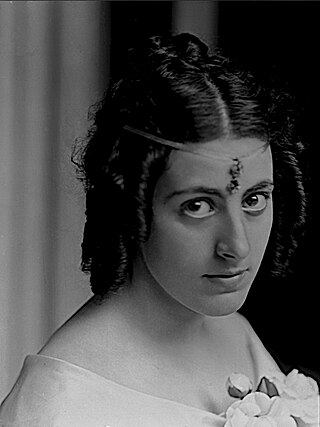Related Research Articles

George Edward Moore was an English philosopher, who with Bertrand Russell, Ludwig Wittgenstein and earlier Gottlob Frege was among the initiators of analytic philosophy. He and Russell began deemphasizing the idealism which was then prevalent among British philosophers and became known for advocating common-sense concepts and contributing to ethics, epistemology and metaphysics. He was said to have an "exceptional personality and moral character". Ray Monk later dubbed him "the most revered philosopher of his era".

Sir Karl Raimund Popper was an Austrian–British philosopher, academic and social commentator. One of the 20th century's most influential philosophers of science, Popper is known for his rejection of the classical inductivist views on the scientific method in favour of empirical falsification. According to Popper, a theory in the empirical sciences can never be proven, but it can be falsified, meaning that it can be scrutinised with decisive experiments. Popper was opposed to the classical justificationist account of knowledge, which he replaced with critical rationalism, namely "the first non-justificational philosophy of criticism in the history of philosophy".

Ludwig Josef Johann Wittgenstein was an Austrian philosopher who worked primarily in logic, the philosophy of mathematics, the philosophy of mind, and the philosophy of language.
Logical positivism, later called logical empiricism, and both of which together are also known as neopositivism, is a movement whose central thesis is the verification principle. This theory of knowledge asserts that only statements verifiable through direct observation or logical proof are meaningful in terms of conveying truth value, information or factual content. Starting in the late 1920s, groups of philosophers, scientists, and mathematicians formed the Berlin Circle and the Vienna Circle, which, in these two cities, would propound the ideas of logical positivism.
Analytic philosophy is an analysis focused, broad, contemporary movement or tradition within Western philosophy, especially anglophone philosophy. Analytic philosophy is characterized by a clarity of prose; rigor in arguments; and making use of formal logic and mathematics, and, to a lesser degree, the natural sciences. It is further characterized by an interest in language and meaning known as the linguistic turn. It has developed several new branches of philosophy and logic, notably philosophy of language, philosophy of mathematics, philosophy of science, modern predicate logic and mathematical logic.

Friedrich Albert Moritz Schlick was a German philosopher, physicist, and the founding father of logical positivism and the Vienna Circle.

The Vienna Circle of logical empiricism was a group of elite philosophers and scientists drawn from the natural and social sciences, logic and mathematics who met regularly from 1924 to 1936 at the University of Vienna, chaired by Moritz Schlick. The Vienna Circle had a profound influence on 20th-century philosophy, especially philosophy of science and analytic philosophy.
In metaphysics and philosophy of language, the correspondence theory of truth states that the truth or falsity of a statement is determined only by how it relates to the world and whether it accurately describes that world.
Ordinary language philosophy (OLP) is a philosophical methodology that sees traditional philosophical problems as rooted in misunderstandings philosophers develop by distorting or forgetting how words are ordinarily used to convey meaning in non-philosophical contexts. "Such 'philosophical' uses of language, on this view, create the very philosophical problems they are employed to solve."

Gertrude Elizabeth Margaret Anscombe, usually cited as G. E. M. Anscombe or Elizabeth Anscombe, was a British analytic philosopher. She wrote on the philosophy of mind, philosophy of action, philosophical logic, philosophy of language, and ethics. She was a prominent figure of analytical Thomism, a Fellow of Somerville College, Oxford, and a professor of philosophy at the University of Cambridge.

Stephen Edelston Toulmin was a British philosopher, author, and educator. Influenced by Ludwig Wittgenstein, Toulmin devoted his works to the analysis of moral reasoning. Throughout his writings, he sought to develop practical arguments which can be used effectively in evaluating the ethics behind moral issues. His works were later found useful in the field of rhetoric for analyzing rhetorical arguments. The Toulmin model of argumentation, a diagram containing six interrelated components used for analyzing arguments, and published in his 1958 book The Uses of Argument, was considered his most influential work, particularly in the field of rhetoric and communication, and in computer science.

William Warren Bartley III, known as W. W. Bartley III, was an American philosopher specializing in 20th century philosophy, language and logic, and the Vienna Circle.

Richard Bevan Braithwaite was an English philosopher who specialized in the philosophy of science, ethics, and the philosophy of religion.
Verificationism, also known as the verification principle or the verifiability criterion of meaning, is a doctrine in philosophy which asserts that a statement is meaningful only if it is either empirically verifiable or a tautology. Verificationism rejects statements of metaphysics, theology, ethics and aesthetics as meaningless in conveying truth value or factual content, though they may be meaningful in influencing emotions or behavior.
Sir John Evelyn Vincent Vinelott was a leading barrister at the Chancery bar and an English High Court judge in the Chancery Division from 1978 to 1994.

Margaret "Gretl" Stonborough-Wittgenstein of the prominent and wealthy Viennese Wittgenstein family, was a sister of the philosopher Ludwig Wittgenstein and the pianist Paul Wittgenstein. She was the subject of a famous 1905 portrait painted for her wedding by the artist Gustav Klimt, which was sold in 1960 by her son Thomas and may now be seen in the Alte Pinakothek gallery in Munich.
Peter Munz was a philosopher and historian, Professor of the Victoria University of Wellington; among the major influences on his work were Karl Popper and Ludwig Wittgenstein. Munz is one of two students who studied under both Popper and Wittgenstein.
David Edmonds is a British philosopher, and a radio feature maker at the BBC World Service. He studied at Oxford University, has a PhD in philosophy from the Open University and has held fellowships at the University of Chicago and the University of Michigan. Edmonds is the author of Caste Wars: A Philosophy of Discrimination and co-author with John Eidinow of Wittgenstein's Poker: The Story of a Ten-Minute Argument Between Two Great Philosophers and Bobby Fischer Goes to War: How the Soviets Lost the Most Extraordinary Chess Match of All Time.

The Cambridge University Moral Sciences Club, founded in October 1878, is a philosophy discussion group that meets weekly at the University of Cambridge during term time. Speakers are invited to present a paper with a strict upper time limit of 45 minutes, after which there is discussion for an hour. Several Colleges have hosted the Club: Trinity College, King's College, Clare College, Darwin College, St John's College, and from 2014 Newnham College.
References
- ↑ "Official website of John Eidinow, author of Another Day". john-eidinow. Retrieved 30 April 2024.
- 1 2 Holt, Jim (30 December 2001). "Ludwig Has Left the Building". The New York Times . Retrieved 31 August 2010.
- ↑ Gopnik, Adam (1 April 2002). "A Critic at Large: The Porcupine". The New Yorker . Condé Nast Publications. Retrieved 31 August 2010.
- ↑ Horgan, John (22 August 2018). "The Paradox of Karl Popper" . Scientific American. Retrieved 12 March 2023.
- ↑ Henry JL & Edmonds D (July 28 2021), ‘Wittgenstein's Poker’ (no.11) in The Popperian Podcast. Retrieved 13 March 2023